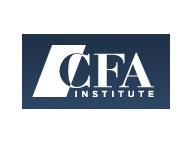Faculty News
—
Professor Joseph Foudy comments on China National Chemical Corporation's possible acquisition of Syngenta
—

Excerpt from The New York Times -- "'Normally, the biggest worry is market concentration, but in this case, it’s the Chinese government,' said Joseph Foudy, a professor of Asian economics at the Stern School of Business at New York University. 'Are we comfortable with the Chinese government controlling our genetically modified seeds? What if they limit to countries they don’t like?'"
Faculty News
—

Excerpt from The New York Times -- "'Normally, the biggest worry is market concentration, but in this case, it’s the Chinese government,' said Joseph Foudy, a professor of Asian economics at the Stern School of Business at New York University. 'Are we comfortable with the Chinese government controlling our genetically modified seeds? What if they limit to countries they don’t like?'"




















